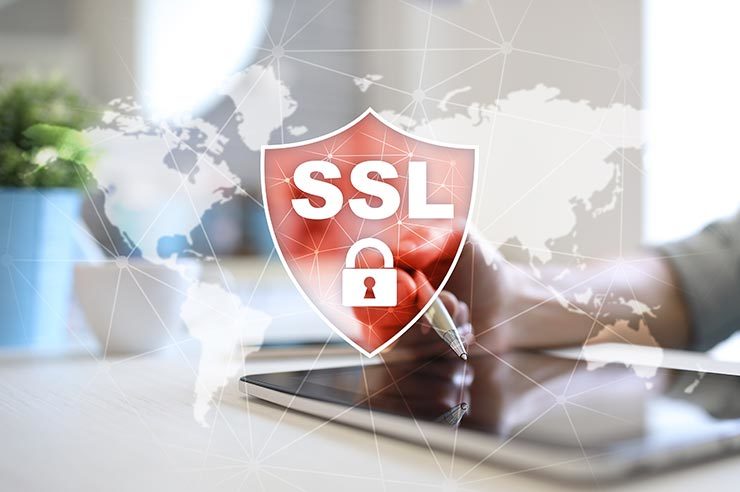Why is SSL Important for Websites?
Many things pair well in the modern world. Think Bluetooth and your smartphone (pun intended); Wi-Fi and routers; tablets and mobile computing; data and The Cloud. These contemporary combos are quite the networkers. Some would even say they’re as tight as best friends. Yet no two technologies are quite as complementary – or as covertly prevalent – as websites and SSL.
SSL may be mystifying to the average consumer, but it’s a commercial website essential. It’s time for you to download some SSL knowledge (securely, of course). Check out our basic guide to this Internet tool.
What is an SSL?
Secure Socket Layers or SSLs protect the four corners of the Internet. They’re the approved defenders of sensitive Internet content – namely, login credentials, financial information, and email messages. In the most basic terms, SSL is a method of coding (or encryption) that presumably keeps private information safe as it’s passed from a website’s server to a user’s browser (Internet Explorer, Mozilla Firefox, Safari, Google Chrome, etc.)
Unlocking the Secrets Behind SSL
How do you know if a website is protected? Check the web address bar on your browser. Secure web pages – generally those areas that deal with the transmission of sensitive information – will read “HTTPS” before the site address. The “S” stands for secure.
Web page visitors can further explore a site’s integrity by clicking on the lock (typically within the web address bar) to view the website’s SSL certificate. An SSL certificate verifies the authenticity of the so-called secure connection, ensuring the website is not fraudulently transmitting data for a trustworthy user experience.
Your Website and Security: Your BFFL in SSL
At this point, you’re probably wondering if your site needs an SSL. If you offer any sort of goods or services that require users to enter personal information on your site, then yes: those vulnerable pages need protection. In addition to the provided security, most users now expect encryption verification before providing sensitive information, making SSL a dual strategy for businesses.
To equip your site with SSL, you must first request and then install the certificate. An SSL is generally requested via the backend control panel of your hosted website. The certificate itself is often provided by a third-party company (separate from your web host). The installation is a configuration process that takes place again on the backend of your website.
Each web host has a different request/install process. A programming professional can provide the necessary guidance that ensures your SSL is appropriately purchased and configured.
Note: In order for your website and SSL to be BFFL (best friends for life), your SSL must be renewed – typically every two years – to keep your site protected.
Is your website really secure? Our programming professionals can work with you on your next website development project to guarantee your online presence is protected. Give us a call today and find out how we can help.
